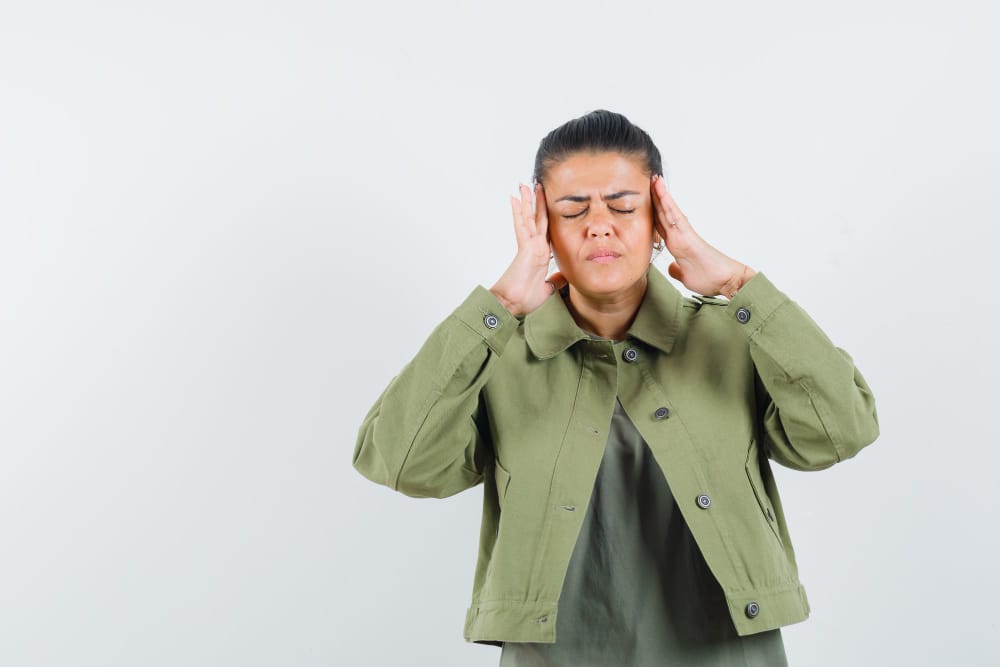Can cavities cause ear pain? Surprisingly, the answer is yes. Cavities, or tooth decay, don’t just impact oral health; they can also lead to discomfort in other areas, including the ears. Because the nerves in the face, jaw, and ears are interconnected, pain originating from a cavity can sometimes radiate, creating sensations in the ears that can be confusing to pinpoint. This article will explore the connection between cavities and ear pain, helping you understand the causes, symptoms, and when to seek professional advice.
Table of Contents
- What Are Cavities?
- Understanding Ear Pain
- How Dental Issues Can Lead to Ear Pain
- Symptoms of Ear Pain Caused by Cavities
- When to See a Dentist
- Conclusion
What Are Cavities?
Cavities are areas of tooth decay that develop when the hard surface of the tooth, called enamel, becomes damaged by bacteria. These bacteria feed on sugars and produce acids that gradually erode the enamel, creating tiny holes or “cavities.” If left untreated, these cavities can grow deeper, potentially affecting the inner layers of the tooth and even reaching the nerves, which can lead to significant pain and other complications.
Understanding Ear Pain
Ear pain, also known as otalgia, is a common issue that can range from mild discomfort to severe, sharp pain. It can affect one or both ears and may last for a short period or be persistent over time. Various factors can cause ear pain, and understanding these can aid in diagnosing and effectively treating the underlying issues.
Types of Ear Pain
Ear pain is generally categorized into two types:
- Primary Ear Pain: This type of pain originates directly within the ear itself. Common causes include ear infection, earwax buildup, foreign objects in the ear canal, and ear injuries.
- Referred or Secondary Ear Pain: This occurs when pain is felt in the ear, but the source of the discomfort lies elsewhere. The nerves in the head and neck are interconnected, so pain from one area can be perceived as originating from another. Dental issues, such as cavities, can contribute to referred ear pain, according to this source. Additionally, conditions like temporomandibular joint (TMJ) disorders, sinus infections, and throat infections can also lead to referred ear pain.
How Dental Issues Can Lead to Ear Pain
It might seem surprising, but tooth problems can sometimes cause earaches. This is due to the close connection of nerves in the face, jaw, and ears. When a tooth hurts, the pain can travel along these nerves and be felt in the ear. This is known as referred pain.
Why Do Dental Issues Cause Referred Ear Pain?
Our bodies have nerves that control how we feel sensations in the face and head. These nerves connect the teeth, jaw, and ears. When a tooth is bothering us, such as a cavity or infection, these nerves can send pain signals to the brain. The brain might mistakenly interpret the pain as originating from the ear, even though the actual problem lies with the tooth.
This happens because the nerves that control the face and head form a network. They are all interconnected, allowing pain to spread from one area to another. When teeth hurt, the pain can travel along this network and be felt in the ear.
Symptoms of Ear Pain Caused by Cavities
Ear pain linked to cavities often feels like a typical earache, making it difficult to pinpoint the exact cause. Here are common symptoms:
- Persistent, Dull Earache: This pain can linger and worsen at night or after eating.
- Radiating Pain: Pain can start in the jaw or tooth and spread to the ear.
- Sensitivity to Temperature and Sweet Foods: Hot, cold, or sugary foods can trigger sharp pain in the tooth and ear.
- Combined Toothache and Earache: Experiencing both simultaneously often indicates a dental issue.
- Aggravated Pain When Chewing: Chewing or biting can worsen both tooth and ear pain.
- Jaw Pain and Tension: Jaw muscle tension from avoiding chewing on the affected side can radiate pain to the ear.
- Headaches: Persistent tooth pain can lead to headaches, especially around the ear or temple.
- Swollen or Tender Gums: Gum swelling or tenderness near the affected tooth can also contribute to ear pain.
- Feeling of Fullness or Pressure: This sensation can mimic an ear infection but is often linked to dental issues.
When to See a Dentist
If you’re experiencing ear pain and suspect it might be related to a dental issue, it’s crucial to consult a dentist promptly. Here are some signs that indicate you should seek professional dental care:
- Persistent Earache: If the ear pain worsens or doesn’t subside over time, it’s best to consult a dentist.
- Toothache and Ear Pain: Experiencing both simultaneously is a strong indicator of a potential dental problem.
- Visible Cavities or Tooth Decay: If you notice any signs of tooth decay, such as holes in your teeth or discolored areas, schedule a dental appointment.
- Swollen Gums or Jaw Pain: These symptoms can be associated with dental infections or other underlying issues.
- Difficulty Chewing or Biting: If you’re avoiding certain foods or having trouble chewing due to tooth pain, it’s essential to seek dental care.
A dentist can accurately diagnose the cause of your ear pain and recommend appropriate treatment. Early intervention can help prevent the problem from worsening and alleviate your discomfort.
Conclusion
In conclusion, understanding the connection between cavities and ear pain is crucial for effective diagnosis and treatment. If you’ve been wondering, “Can cavities cause ear pain?” the answer is yes, and experiencing ear pain alongside dental discomfort may indicate an underlying issue that requires prompt attention. Our expert dentists can help identify the root cause of your pain and develop a personalized treatment plan to alleviate your symptoms. Don’t wait—schedule a consultation with us today to ensure your oral health is taken care of and to prevent further complications.
